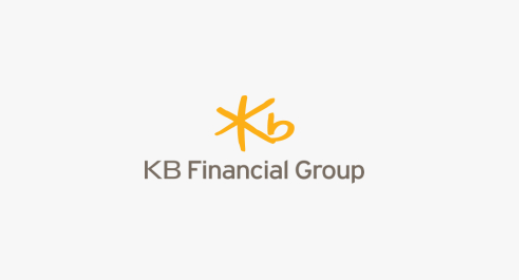
Editor's Note: This article is the 36th installment in our series on Asia's top 100 companies, exploring the strategies, challenges, and innovations driving the region's most influential corporations.
SEOUL, September 18 (AJP) - South Korea’s largest financial group is making a high-stakes wager on artificial intelligence, betting that the technology will reshape the future of banking in Asia and cement its dominance in the region’s fast-changing financial industry.
“People should say that if you want to do financial AI, you have to go to KB,” Yang Jong-hee, chairman of KB Financial Group, told employees at a workshop early this year. The remark has since become a kind of rallying cry for a company determined to lead what it sees as a digital revolution in finance.
KB reported a net profit of 3.44 trillion won, or about $2.5 billion, in the first half of 2025, a 23.8 percent jump from the year before. The results, executives say, underscore the strength of its new AI-first strategy, which they believe will transform how customers across Asia use financial services — from loans and insurance to wealth management and payments.
Founded in 2008 when Kookmin Bank reorganized into a holding company, KB has grown into a sprawling financial conglomerate with 13 subsidiaries in banking, securities, insurance, credit cards and asset management.
Its origins stretch back to the 1960s, when South Korea created state-backed lenders like Housing & Commercial Bank to fuel industrial growth. A merger in 2001 gave rise to modern Kookmin Bank, the core of today’s KB Financial.
Expansion has long been central to KB’s strategy. Over the past decade, it has spent billions acquiring rivals and pushing into Southeast Asia. It bought LIG Insurance in 2015, Hyundai Securities a year later, and Prudential Life Insurance Korea in 2020 for 2.3 trillion won. In 2021, it acquired Indonesia’s Bank Bukopin, now KB Bukopin, which returned to profitability this year.

Banking remains KB’s bread and butter, but fee-based services are becoming increasingly important. In 2025, non-interest income topped 1 trillion won in a single quarter for the first time.
The company’s KB Star Banking app, which combines more than 70 services ranging from mortgages to credit cards, has helped cement its reputation as one of South Korea’s most digitally advanced lenders. Last year, regulators designated eight KB subsidiaries as “innovative financial services” for their use of generative AI — the most of any financial group.
“Through the designation, KB will be able to stay one step ahead in the AI-centered financial innovation race,” a company spokesman said.
Even as it invests heavily in digital technology, KB has maintained a focus on rewarding shareholders.
This year it announced 850 billion won in stock buybacks and a cash dividend of 920 won per share, moves that will bring total shareholder returns to 3.01 trillion won — the highest in its history, according to chief financial officer Na Sang-rok.
The group has retained strong credit ratings — A1 from Moody’s and A from both S&P and Fitch — and has been listed on the Dow Jones Sustainability Index World for seven consecutive years, signaling to investors that it sees environmental and governance concerns as inseparable from financial performance.
With operations spanning South Korea, the United States, China, Britain and Southeast Asia, KB now wants to leverage its AI edge in pursuit of a larger goal: transforming itself from a national banking champion into a regional powerhouse.

Copyright ⓒ Aju Press All rights reserved.



